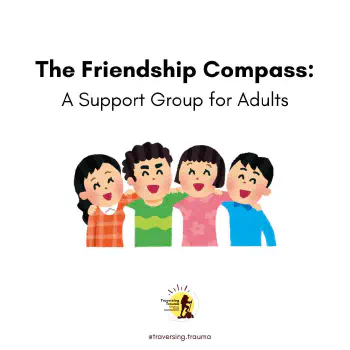4 associate therapists from our practice will be faciliatating the sessions in pairs each month on a rotational basis.
Prachee: Prachee Ramsinghani (she/her) is an associate psychotherapist at Traversing Trauma Psychotherapy Services with 2 years of experience. She holds an M.A. in Clinical Psychology and is fluent in English and Hindi. Her trauma-informed, integrative approach draws from CBT, DBT, REBT, strength-based techniques, attachment theory, and somatic practices. Prachee creates a compassionate, non-judgmental space for clients aged 18–70, helping them navigate anxiety, grief, depression, interpersonal challenges, career transitions, and childhood trauma. She is also a queer-affirmative therapist, addressing issues like internalized queerphobia, discrimination, and relationship concerns. In addition to her role at Traversing Trauma, she is a counselor with the Vandrevala Foundation. Through collaboration, she empowers clients to explore healing, meaning-making, and personal growth.
Sagar: Sagar Takker (he/him) is an associate psychotherapist at Traversing Trauma Psychotherapy Services with 1.5 years of experience. He holds an MSc in Psychology and works with clients aged 18–40 in English and Hindi. His integrative, trauma-informed approach incorporates Acceptance and Commitment Therapy (ACT), Humanistic-Existential Therapy, and Internal Family Systems (IFS). Sagar helps clients navigate social anxiety, depression, relationship concerns, and difficult childhood experiences, focusing on self-compassion and emotional regulation. Through a collaborative process, he supports clients in developing healthier coping mechanisms and creating fulfilling lives.
Namrata: Namrata Nagabhushana (she/her) is an associate psychotherapist at Traversing Trauma Psychotherapy Services, bringing her expertise as a couple’s therapist to the team. She holds an M.A. in Counseling Psychology and a certification in Solution-Focused Brief Therapy. Her therapeutic approach is trauma-informed grounded in a queer-affirmative
framework, while also incorporating a systemic lens. Namrata is dedicated to creating a safe and non-judgmental space for individuals seeking to navigate various mental health challenges. Her commitment to fostering healing and personal growth is evident in her compassionate and client-centered approach. Through collaboration, Namrata empowers clients to explore healing, meaning-making, and personal development, guiding them toward a more fulfilling life.
Trayosee: Trayosee Ghosh (she/her) is an associate psychotherapist at Traversing Trauma Psychotherapy Services with 2.5 years of experience. She holds an MSc in Counseling Psychology and is a Certified Integral Somatic Practitioner and Art Therapist. Fluent in English, Hindi, and Bengali, she works with clients aged 18–45. Trayosee’s eclectic, trauma-informed approach integrates Integral Somatic Psychology, Art Therapy, CBT, and Narrative Therapy. She supports individuals struggling with emotional instability, self-image concerns, interpersonal challenges, and difficult childhood experiences. Trayosee creates a compassionate space for clients to explore self-expression, develop emotional resilience, and break self-sabotaging patterns.
Other associate therapists when onboarded to be part of the practice may also facilitate these sessions in the future.
Notes: The above information may change from time to time, and is shared with you to understand the background of where the support group comes from.







